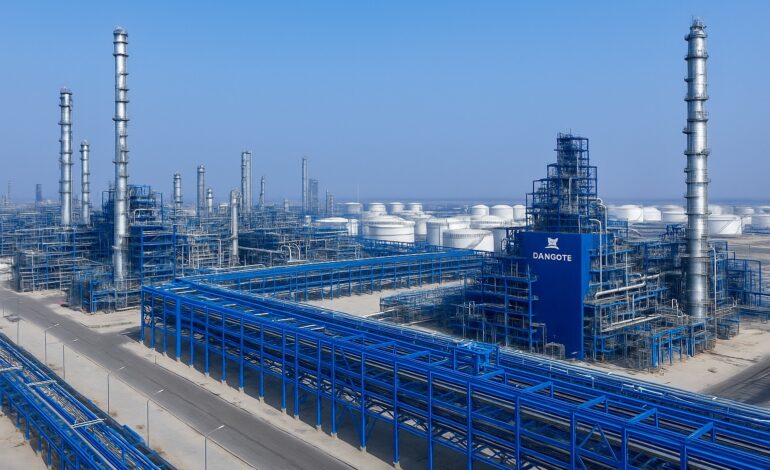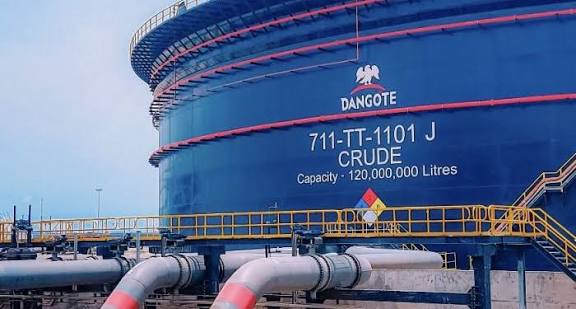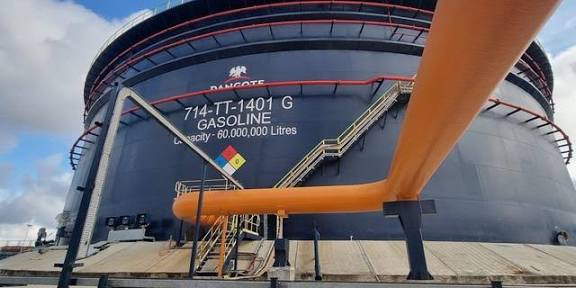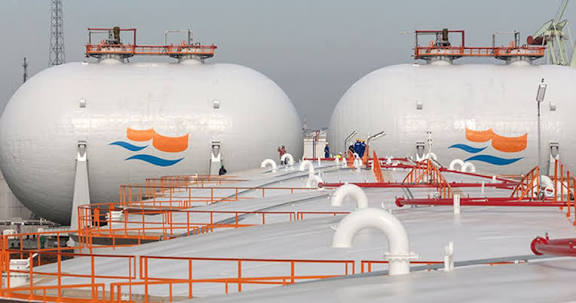
Faith Nyasuguta
Nigeria’s $20 billion Dangote Refinery has achieved a landmark success by delivering its first gasoline cargo to the United States, showcasing both its technical prowess and its ambition to become a heavyweight in the global fuel trade. The shipment, which met some of the world’s strictest environmental and quality standards, marks the first time the new Lagos-based mega-facility has cracked the coveted U.S market.
Carried aboard the tanker Gemini Pearl, the 320,000-barrel load was discharged on Monday at Sunoco’s Linden terminal in New York Harbor, according to vessel-tracking data and industry insiders. For months, traders and refiners around the world had been watching closely to see whether Dangote’s output could compete in premium markets such as the U.S, where compliance and performance standards are notoriously rigorous.
How the First Cargo Happened

The inaugural shipment involved some of the biggest names in global fuel trading. Reuters reports that Swiss-based Mocoh Oil supplied the gasoline, which was purchased by global trading giant Vitol. Vitol then resold most of it to Sunoco, the major U.S. distributor that took delivery in New York. While the exact volume acquired by Sunoco has not been publicly disclosed, shipping and customs data confirm that the cargo met all required specifications.
Two additional Dangote cargos are already lined up. Another shipment, arranged by Glencore and sold to Shell, is expected to arrive in New York Harbor on September 19 aboard the MH Daisen. A third, purchased by Vitol and carried on the vessel Seaexplorer, is slated for around September 22, although sources caution that final destinations can change with market conditions.
Why This Matters
For Nigeria, the moment is about much more than one shipment. The 650,000-barrel-per-day refinery – Africa’s largest and one of the world’s biggest – has been long touted as a game changer for a country that is rich in crude oil but chronically short of refining capacity. Nigeria spends billions of dollars every year importing gasoline and other fuels to satisfy local demand, a paradox that has weighed heavily on its economy.

By proving that its gasoline can meet the United States’ demanding standards, Dangote has sent a powerful signal: its products are ready for the world’s toughest markets. This opens doors not only to North America but also to other premium destinations in Europe and Asia, where high-quality, low-sulfur fuels are mandatory.
Industry analysts suggest that if Dangote can consistently supply advanced markets, it could begin to reshape global trade flows and reposition Nigeria from a crude-oil exporter into a significant player in refined products. Such a shift would boost the country’s foreign-exchange earnings and could help stabilize local fuel supplies, easing decades of shortages and high prices at home.
Expanding Global Footprint
This is not the refinery’s first venture beyond West Africa. In June, it sent about 90,000 metric tons of gasoline eastward in its maiden shipment to Asia. It has also supplied low-sulfur straight-run fuel oil to Singapore and delivered two consignments of jet fuel to Saudi Aramco, signaling a steadily widening reach.

So far, Dangote has shipped roughly 1.7 million barrels of jet fuel to U.S. ports across six vessels, further cementing its presence in international energy trade. Each successful export underscores the refinery’s growing capacity to meet a diverse set of specifications in multiple high-value markets.
A Symbol of Change
For Aliko Dangote and his team, these exports represent far more than commercial milestones. They are a breakthrough into markets long dominated by established players and a tangible step toward reducing Africa’s decades-long dependence on imported fuels.
If the refinery can maintain quality and reliability, Nigeria could finally start to benefit fully from its own oil resources – retaining more value at home while projecting economic influence abroad. For a country eager to diversify its economy and burnish its industrial credentials, the first U.S. gasoline sale is a major stride toward that vision.
RELATED:








